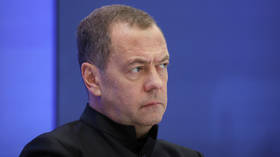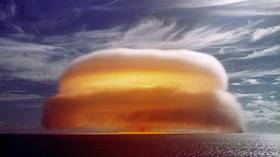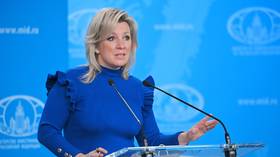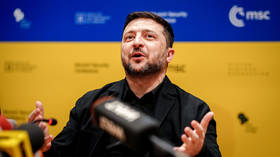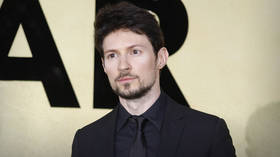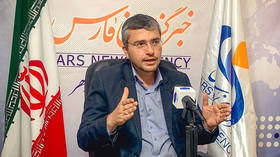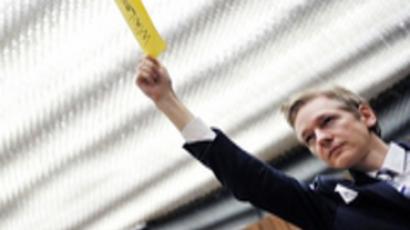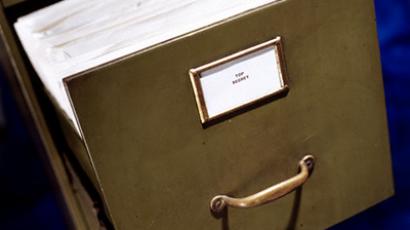WikiLeaks release: US diplomats redefine “diplomatic”
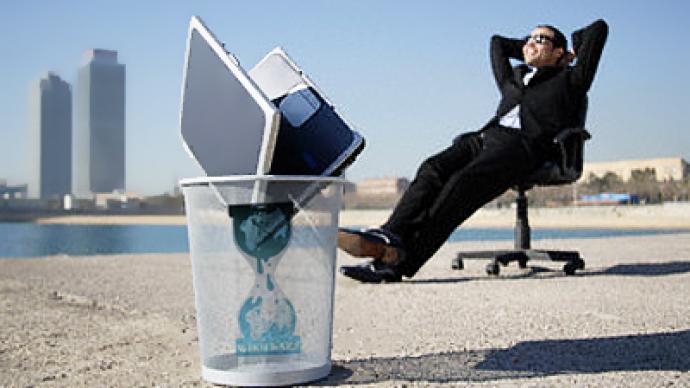
Secret diplomatic cables published by the online whistleblower WikiLeaks reveal America's demeaning views of other countries. Perhaps, though, the leaks will cause more embarrassment than security fears.
What might one expect from a leak of thousands of top-secret United States diplomatic cables?“What it's supposed to be is an updated report on the condition of our relationships, upcoming problems, the kind of personalities the people are dealing with,” says author and political satirist Larry Beinhart.What was revealed in the document dump, courtesy of WikiLeaks, from the work of thousands of Foreign Service employees stationed at hundreds of US embassies around the globe, collecting information under the State Department’s $50 billion budget is the earth-shattering intelligence that:– Libyan leader Muammar al-Gaddafi enjoys horse racing and flamenco dancing and is always accompanied by his voluptuous blond nurse who gives him botox;– French president Nicolas Sarkozy is pegged as an emperor with no clothes;– Russian President Dmitry Medvedev plays “Robin to Prime Minister Putin’s Batman.” Speaking of Putin, he is best buds with Italian Prime Minister Silvio Berlusconi, who really knows how to party;– Kim Jong-il is not just the North Korean dictator, but a also a bouffant-haired madman, and a “flabby old chap”;– Iranian president Mahmoud Ahmadinejad is simply known as “Hitler.”The classified documents, now public, have produced more absurd nicknames than they have news. It has everyone asking if this is a threat to the US national security or a threat to its dignity.It is undeniable the whole thing has made going to work less dignified for US diplomats when they rub shoulders with their foreign colleagues.“While this is obviously an unpleasant and awkward experience, they understand we’re here to work with them as we do every day as partners and colleagues,” explains Susan Rice, a US ambassador to the UN.The story has been front-page news in the US, not because of the sensitive information that has been revealed in the leak, but because of the damage control the US must now do in the face of this international humiliation. So what does this all say about US diplomacy?
“There is an incredibly immature and, frankly, dangerous attitude on the part of American diplomats to categorize the world only in terms of whether people are friendly towards America and whether countries want to be like America,” John Laughland, a director of the Institute for Democracy & Co-operation, told RT.“This shows, I think, the real intellectual flaw at the heart of American foreign policy, because it shows that America, at least the State Department at any rate, is the victim of political autism,” he concluded.An inability to deal with differences, a world divided into good guys and bad guys. One cable delivers on the bad guy stereotype describing Russia, for example, as a mafia state, based on a “thesis” that Russian intelligence controls organized crime, questioning if Putin is involved.“It’s not a lot of deep digging or analysis,” agrees Scott Bates, a vice-president at the Center for National Policy. “If someone has an idea of what Russia is before they go to Russia – well, then that’s probably going to be their opinion, if they do not have an open mind.”With no clear line between fact and fiction, for some it points to politics.“They are pushing an agenda and they really don't have one Earthly idea what’s going on in the world. And for US diplomats, I think, that's pretty worrisome,” says RT contributor Wayne Madsen.Either worrisome or warranted, depending on how you spin it.“To have a conversation, you need a personal relationship, and being able to say Gaddafi ‘Hey, how’s that hot blond nurse?’ you establish a relationship, so when you want to talk about Lockerbie bombers you can diffuse the tension,” said John Laughland.The whole story is more pollution of the information environment, believes Sergey Strokan, a Moscow-based political analyst:“We are overloaded with tons of this information, and we don’t know what is true and what isn’t,” Strokan believes.


